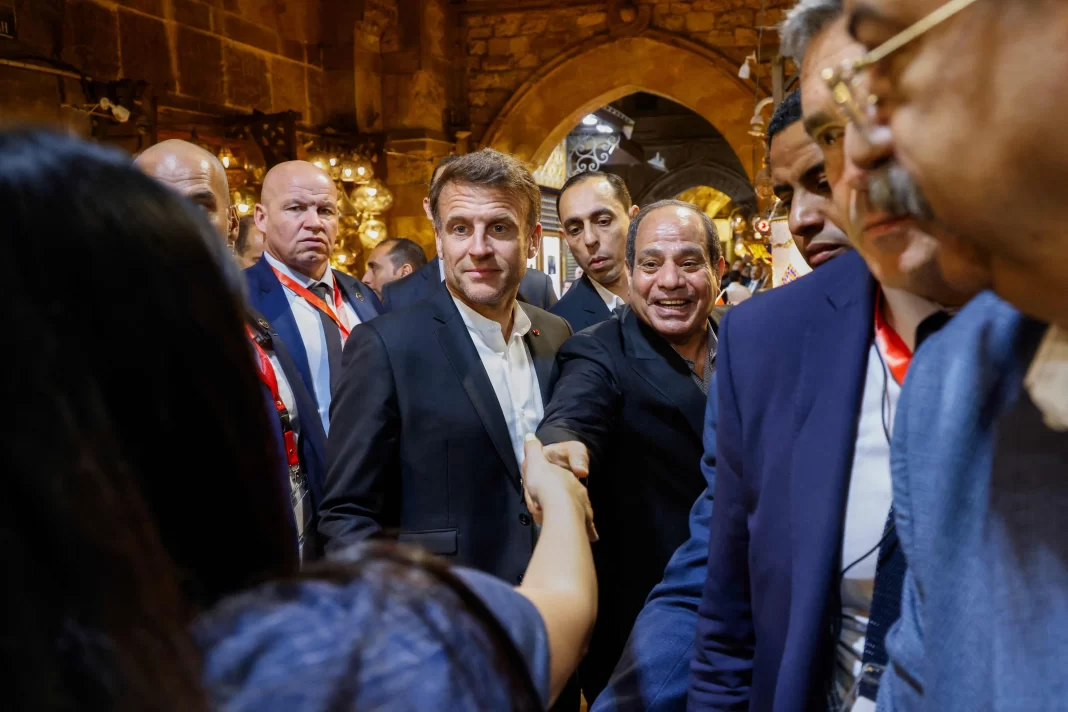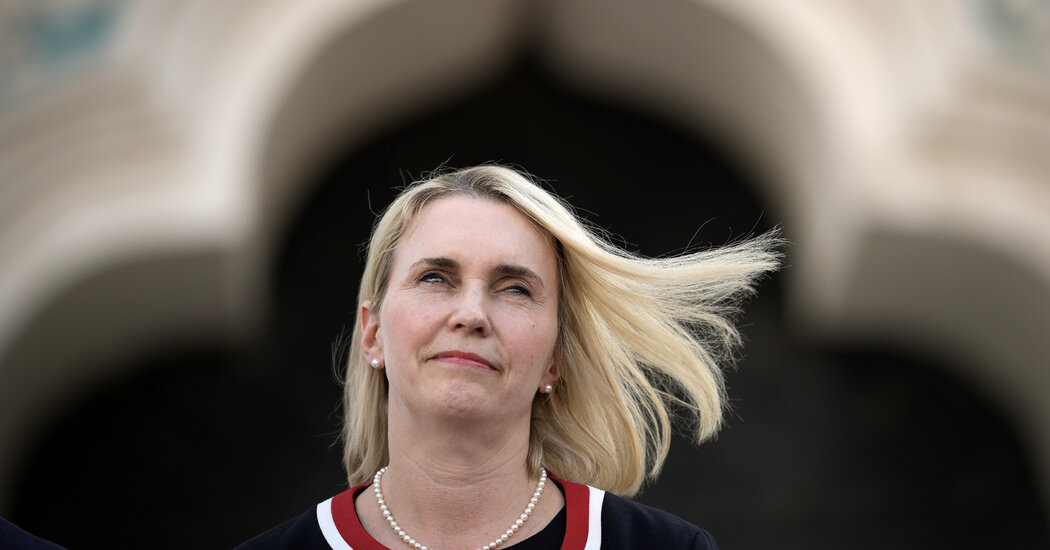In a world where state visits often feel like scripted, sterile photo-ops, the recent visit of French President Emmanuel Macron to Egypt was a breath of fresh air – and, quite frankly, a masterclass in diplomacy, authenticity and strategic storytelling. Egypt not only welcomed a key Western ally but also used the opportunity to subtly and skillfully reframe the international narrative around the country. It is a playbook that should be studied and replicated for future high-profile visits.
From the moment Macron touched down in Cairo, there was a sense that this would not be a typical visit. Yes, there were the standard bilateral meetings and joint press conferences, but what truly stood out were the moments that felt unscripted (even if some were choreographed) – human, even intimate. The sight of Egyptian President Abdel Fattah El-Sisi and French President Macron strolling side by side through the historic Khan El-Khalili District in Old Cairo wasn’t just symbolic; it was savvy.
Here was Egypt – with its chaotic charm, its rich heritage, and its timeless traditions – being showcased not from behind bulletproof glass, but through the eyes of a curious visitor guided by its own head of state. The two leaders dined at a traditional Egyptian restaurant and even took a ride on the Cairo Metro – a simple but powerful gesture that sent a clear message: Egypt is safe, vibrant, and open to the world.
Macron’s team made sure the world saw it too. Videos and photos of him chatting with shopkeepers, navigating the metro, and dining on Egyptian cuisine flooded social media – shared not just by his office but by global news outlets. In an age where soft power is often measured in virality, Egypt walked away with a win. This was not the Cairo of hotel conference rooms or diplomatic compounds. It was the Cairo of everyday people, living history and resilient culture.
But the visit was not just a tourism reel. It also struck a deeply political – and moral – chord when the two leaders traveled together to Egypt’s Rafah border crossing with Gaza. There, they met with Palestinian patients who had been evacuated from the war-torn strip, spoke directly with humanitarian workers and heard first-hand the suffering that has been unfolding under Israel’s relentless military campaign.
In doing so, Egypt positioned itself exactly where it wants – and deserves – to be: at the forefront of regional diplomacy, peace efforts and humanitarian action. For decades, Egypt has played a critical role as a mediator in the Israeli-Palestinian conflict. But too often, this role is acknowledged behind closed doors, overshadowed by louder or more provocative players in the region.
Macron’s visit to Rafah made it impossible to ignore Egypt’s outsized role in responding to the Gaza war. It lent credibility to Egypt’s calls for ceasefire, for the protection of civilians and for meaningful humanitarian access. And perhaps most importantly, it exposed a European leader to the reality on the ground – not through reports or briefings, but through lived experience.
Again, Macron and his team shared everything. Video clips of him speaking to doctors treating wounded Palestinian children, of listening solemnly to NGO workers, were widely viewed and reshared. These were not empty gestures; they were part of a narrative – one that cast Egypt not just as a host, but as a country of conscience.
The footage from the visit showed Macron as visibly moved and deeply affected by what he was hearing. As Palestinian patients recounted their stories, and French and Egyptian NGO workers and doctors described the scale of the devastation and the urgency of the medical crisis, Macron appeared attentive, shaken and empathetic. These were not just polite diplomatic interactions – they were raw, emotional moments that reflected the human toll of the conflict. It was a rare glimpse of a world leader engaging not just politically, but emotionally, with one of the most pressing humanitarian crises of our time.
The impact of that narrative is already being felt. Just days after his return to France, Macron declared that his country could recognize a Palestinian state by June. While recognition has been on the cards for a while in French political discourse, there is no denying that what Macron saw – and felt – in Egypt helped push the needle. His trip was not just another item on the diplomatic calendar; it was a catalyst.
Depuis 1984, la France est aux côtés de l’Égypte pour construire son réseau de métros.
Des millions de voyageurs empruntent chaque jour les lignes 1, 3 et bientôt le monorail vers la nouvelle capitale et la future ligne 6.
Ligne 3 testée et approuvée ! Fierté partagée. pic.twitter.com/3bqunBudP2
— Emmanuel Macron (@EmmanuelMacron) April 7, 2025
For Egypt, this visit should be a blueprint. It showed that state visits don’t have to be stiff or transactional. They can be humanizing, authentic and transformative – for both sides. By showing Egypt not just as a seat of government, but as a living, breathing nation with culture, compassion and conviction, the country can shape how it is perceived globally.
Future visits – whether from Western allies, regional partners or global institutions – should build on this formula. Let dignitaries walk the streets, talk to citizens, ride the metro, visit a school, hear from refugees, share a meal in a local spot. These moments are not just good optics; they are good diplomacy.
In an era of skepticism and information overload, authenticity cuts through the noise. Macron’s visit proved that Egypt does not need to rebrand itself through glossy campaigns. It just needs to open its doors – and tell its story, honestly and boldly. Because when it does, the world listens.


